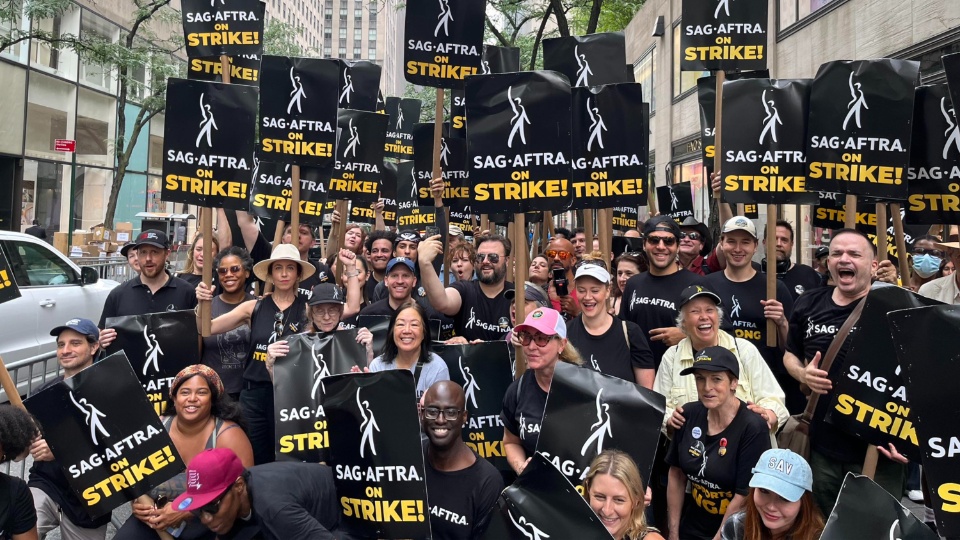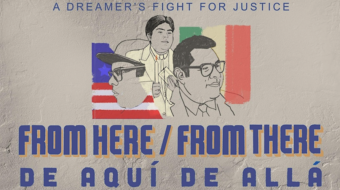
It’s tempting to view the strike underway by Hollywood writers and TV and film actors against the studios as a war between wealthy Hollywood elites.
But that’s not at all the case. In fact, what’s happening now in Hollywood is a microcosm of what’s happening across America in the emerging digital economy—which is rapidly replacing the production of things with the production of digitized ideas.
The workers in this emerging economy are some of the worst paid and worst treated anywhere, while the top owners and managers are among the fattest cats outside Wall Street.
The biggest fights between capital and labor in the 21st century may look different from the struggles of the 20th century—which centered on whether, for example, full-time workers got better hourly pay and benefits, time-and-a-half for overtime, and reasonable working conditions—but they are in many ways the same, if not worse.
They don’t involve physical property. They are over digitized creative output. More specifically, how much of the value of what’s created goes to those who do the creating versus to those who manage those creations?
The entertainment corporations say they’re suffering because people are going to the movies less and cutting their TV cables to watch streaming videos.
But follow the money: Your entertainment dollars are actually going to the biggest corporations in America. These giants have gained huge bargaining power because they own the ways content is distributed and are mining consumer data to give them even more power and higher profits.
Consider: Stock gains this year have been concentrated among five giant digital firms: Apple, Microsoft, Alphabet, Amazon, and Meta. Their combined market capitalization is now over $8 trillion, a figure that exceeds the GDP of every country but the United States and China. They are cash rich. All but Amazon have a combined $200 billion net cash-to-debt balance.
As these giant corporations take over streaming video, video games, and media platforms, their top executives, largest contractors, and biggest investors are raking it in.
Netflix’s Reed Hastings got a 2022 compensation package worth $51.1 million, up 25% from the year before. Warner Bros. Discovery CEO got $39 million. Comcast’s CEO, $32 million. Paramount’s CEO, $32 million. Disney’s CEO, $24 million.
Amazon’s Bezos and Meta’s Zuckerberg are raking in more than all these executives combined.
Meanwhile, the people who create the content are getting shafted. They have less and less bargaining power.
I’m talking about writers, designers, artists, musicians, software designers and developers, photographers, graphics specialists, coders, sound engineers, animators, singers, songwriters, architects, showrunners, journalists, and everyone who stores or delivers these creations.
And it’s just beginning. Artificial intelligence—right now, mostly via Google, Meta, and OpenAI—is busy scraping up every morsel of digital content on the internet. If you’re not Big Tech, your intellectual property is disappearing.
Over the last decade, the pay of TV writers has fallen by 23%. The typical actor has also been on a downward escalator (last year, averaging $26,276). So have the pay, benefits, and job security of most other content creators.
In other words, what’s happening in Hollywood is also happening in a huge and growing portion of the U.S. economy.
This gap between the declining rewards going to digital creators and the soaring rewards going to the executives of the giant corporations that manage digital creations has become a chasm, and it’s becoming ever larger.
The biggest variable in all this is the law—in particular, what limits it places on digital monopolies, and whether it facilitates or limits the power of creators.
In both these respects, the Biden administration has been terrific. It has been more aggressive against monopolists and in favor of unions than any administration since that of Franklin D. Roosevelt.
But much of the law is still in the 20th century, and the federal courts have tended to be on the side of the corporate giants.
Just look at the union busting Amazon has been able to get away with. Or how easily Google, Microsoft, and OpenAI have been lifting copyrighted material from the internet.
Meanwhile, the courts are reluctant to use antitrust to inhibit the giants. Last week, a federal judge rejected the FTC’s attempt to stop Microsoft’s $70 billion acquisition of the video game maker Activision Blizzard, saying the agency failed to prove the deal would reduce competition and harm consumers. This followed the FTC’s loss in February, when a judge rejected its attempt to block Meta from buying the virtual reality startup Within.
As Hollywood’s content creators go on strike, and as the FTC goes after Microsoft and Meta, bear in mind this huge and growing imbalance of power. If unchecked, it will soon comprise much of the American economy.
Reprinted with permission.
We hope you appreciated this article. At People’s World, we believe news and information should be free and accessible to all, but we need your help. Our journalism is free of corporate influence and paywalls because we are totally reader-supported. Only you, our readers and supporters, make this possible. If you enjoy reading People’s World and the stories we bring you, please support our work by donating or becoming a monthly sustainer today. Thank you!











Comments